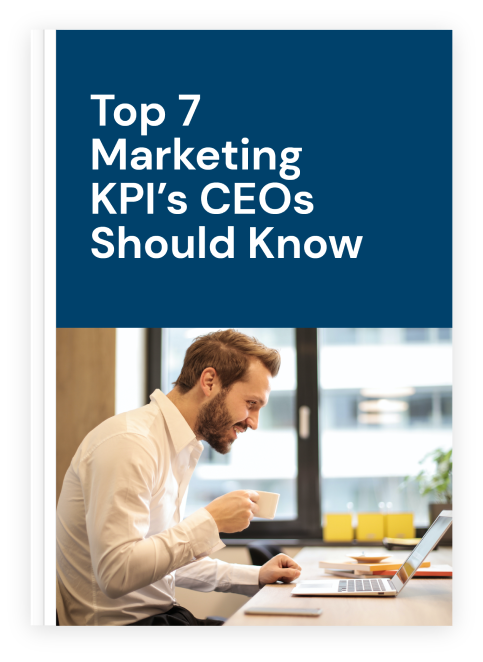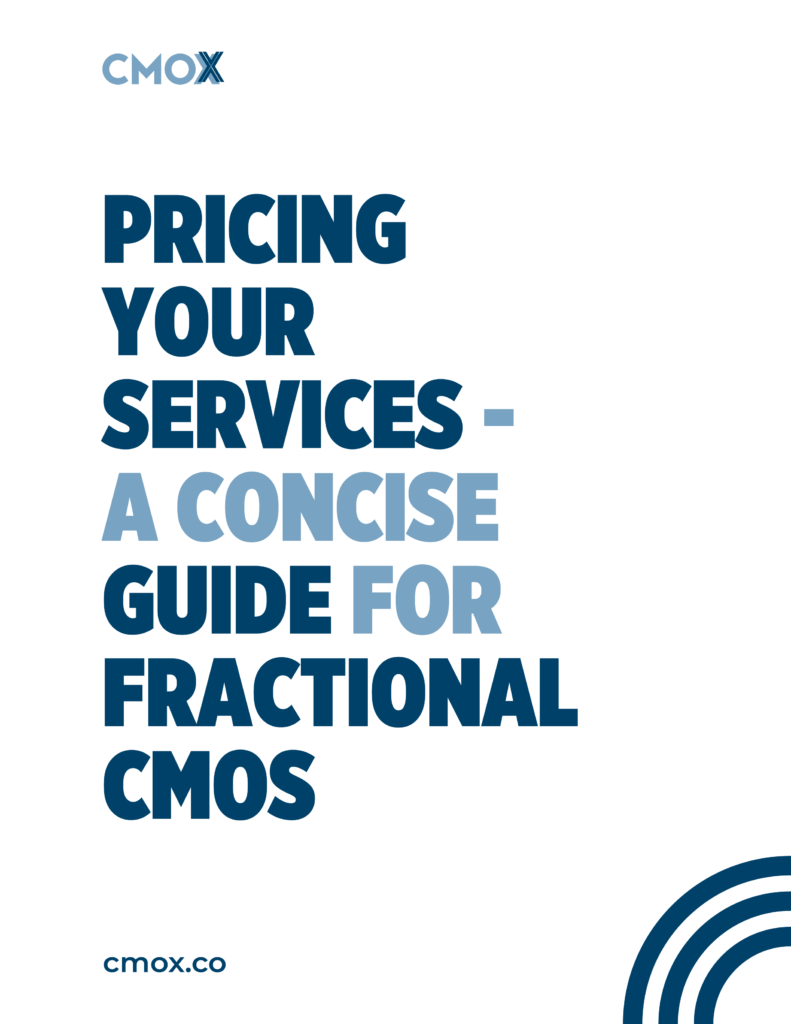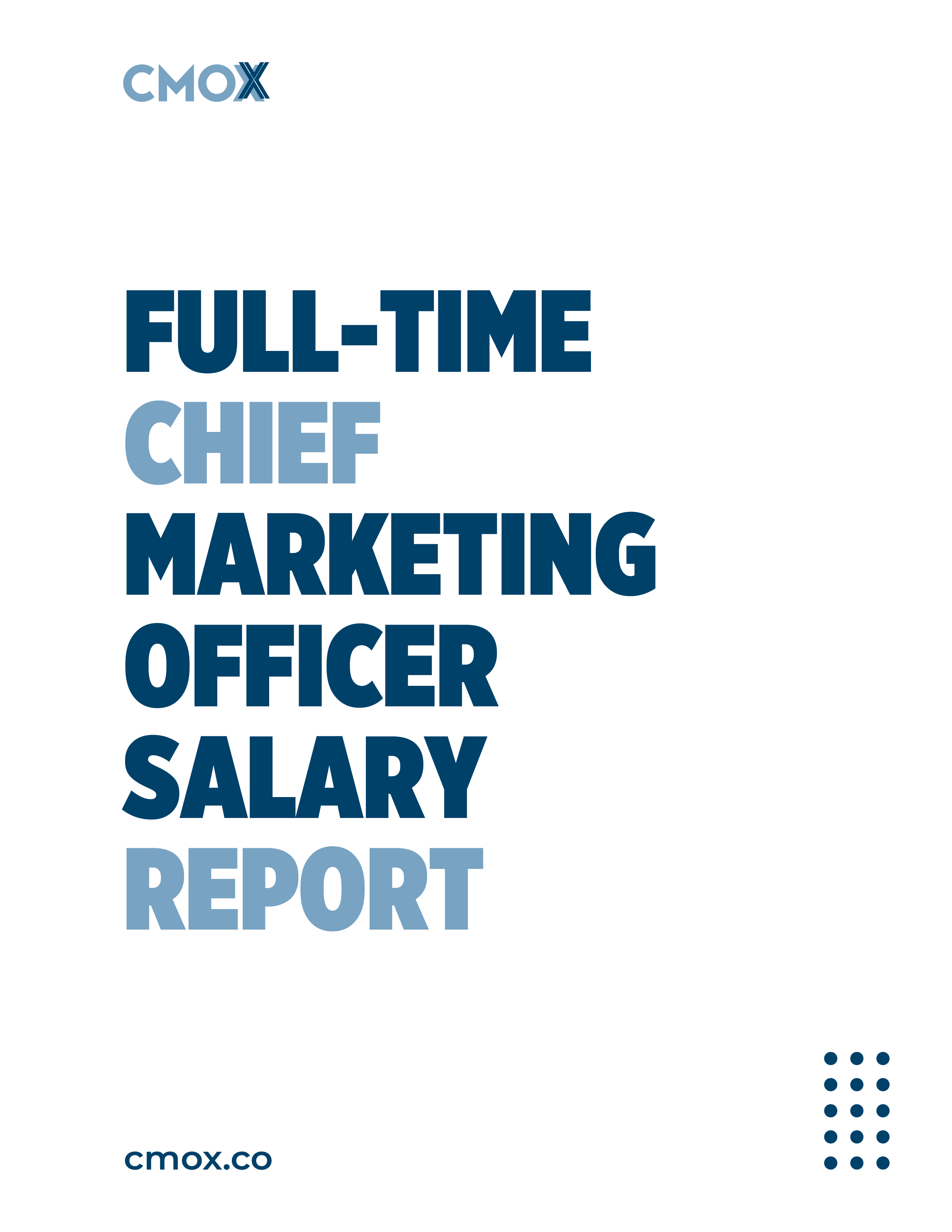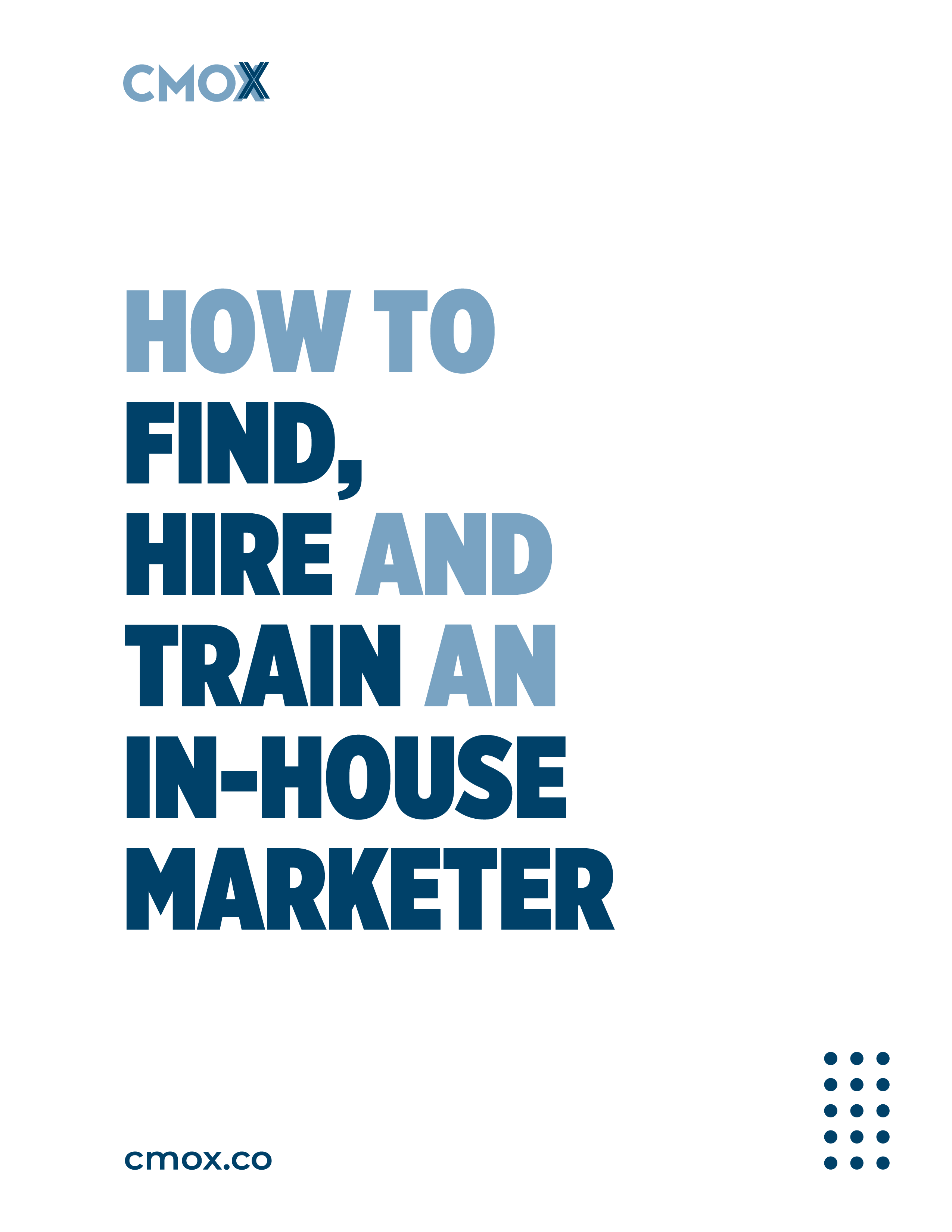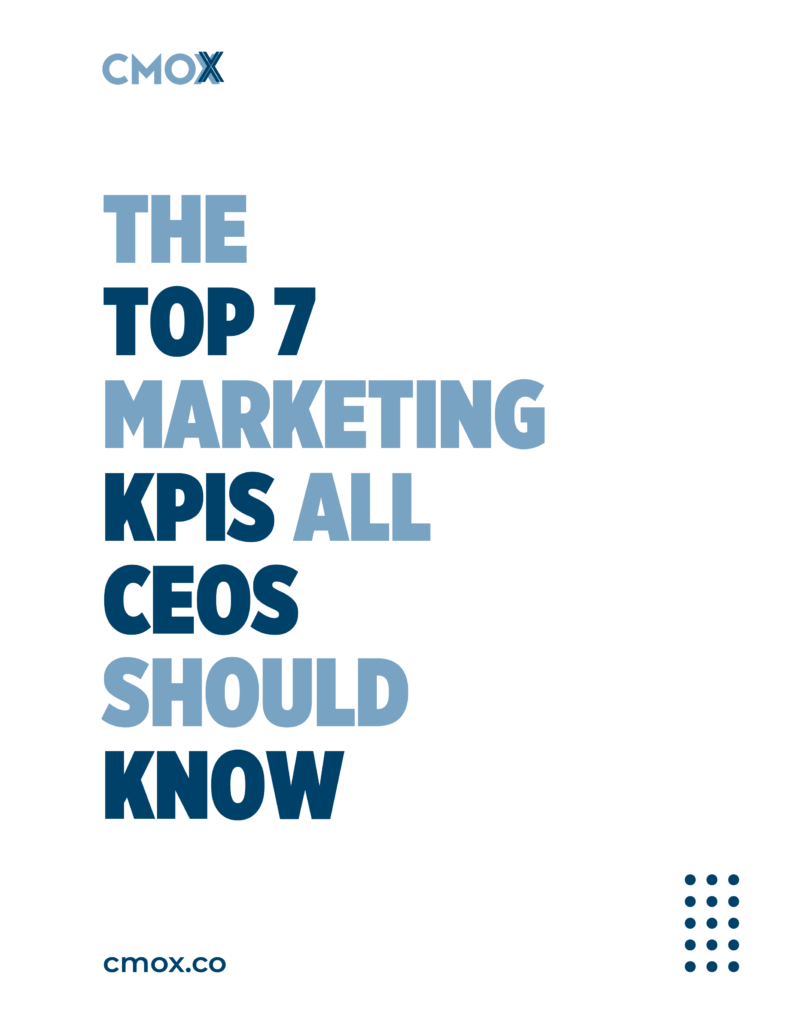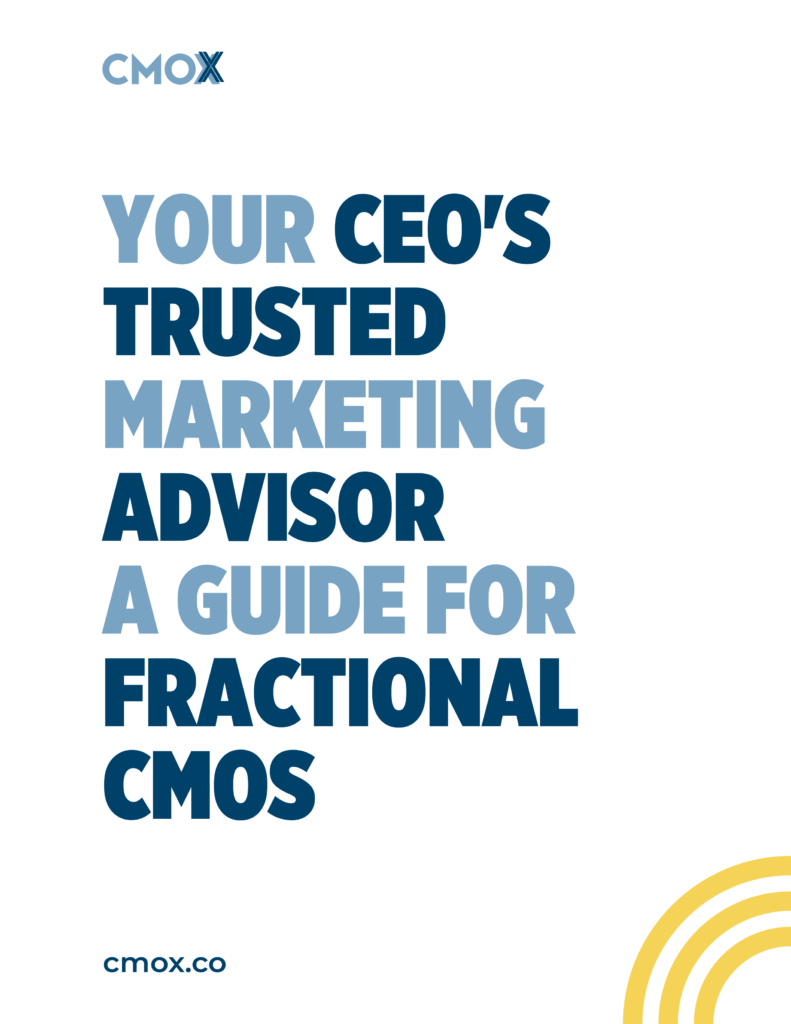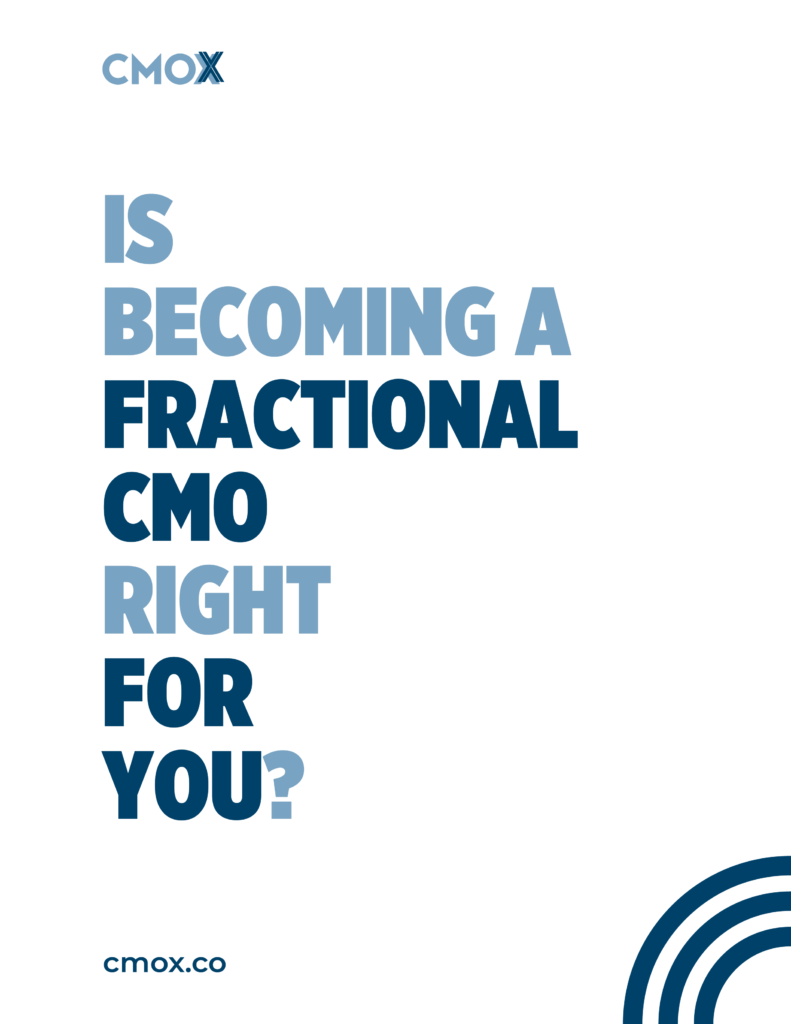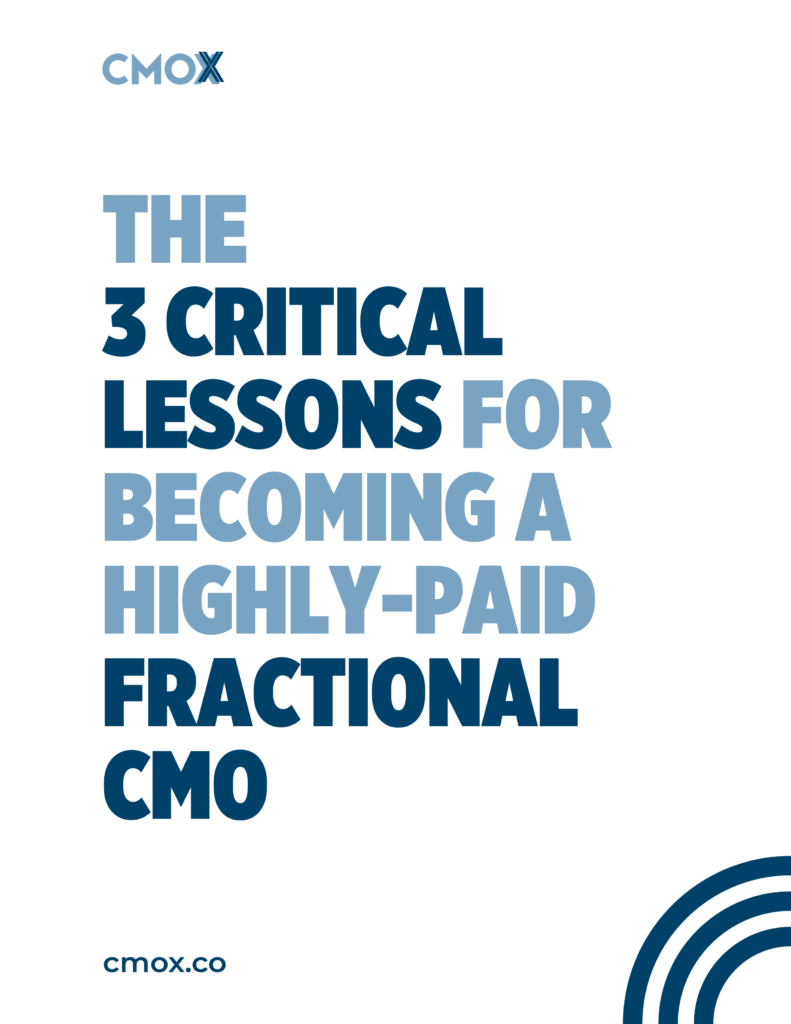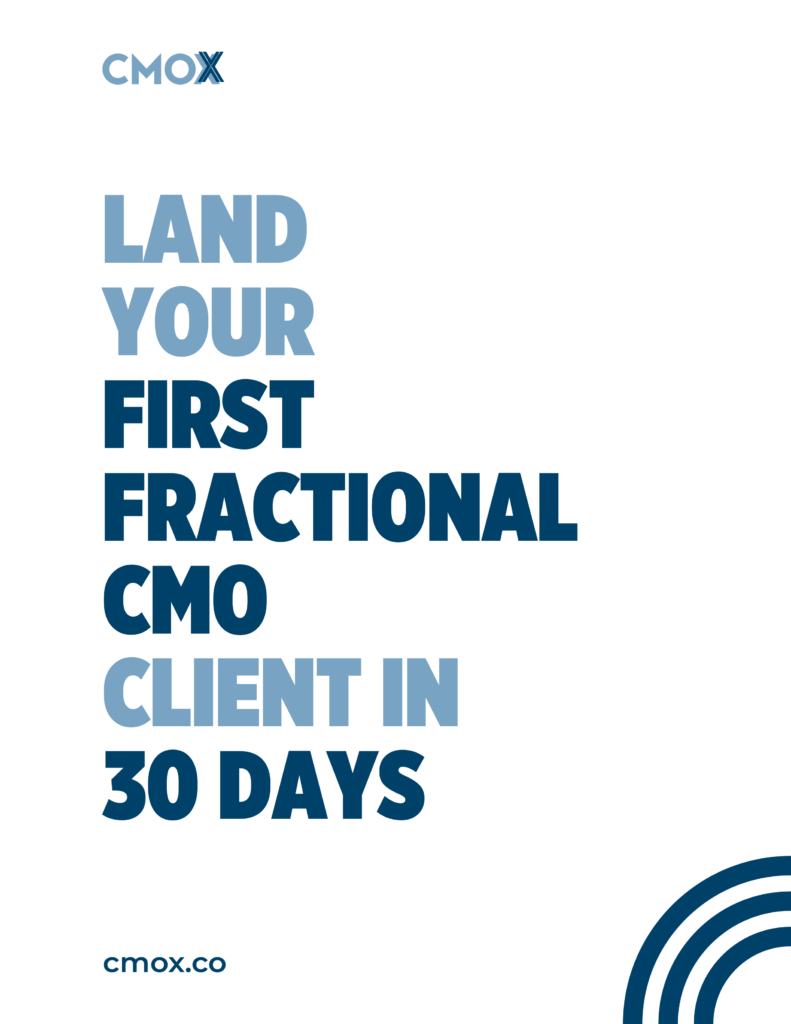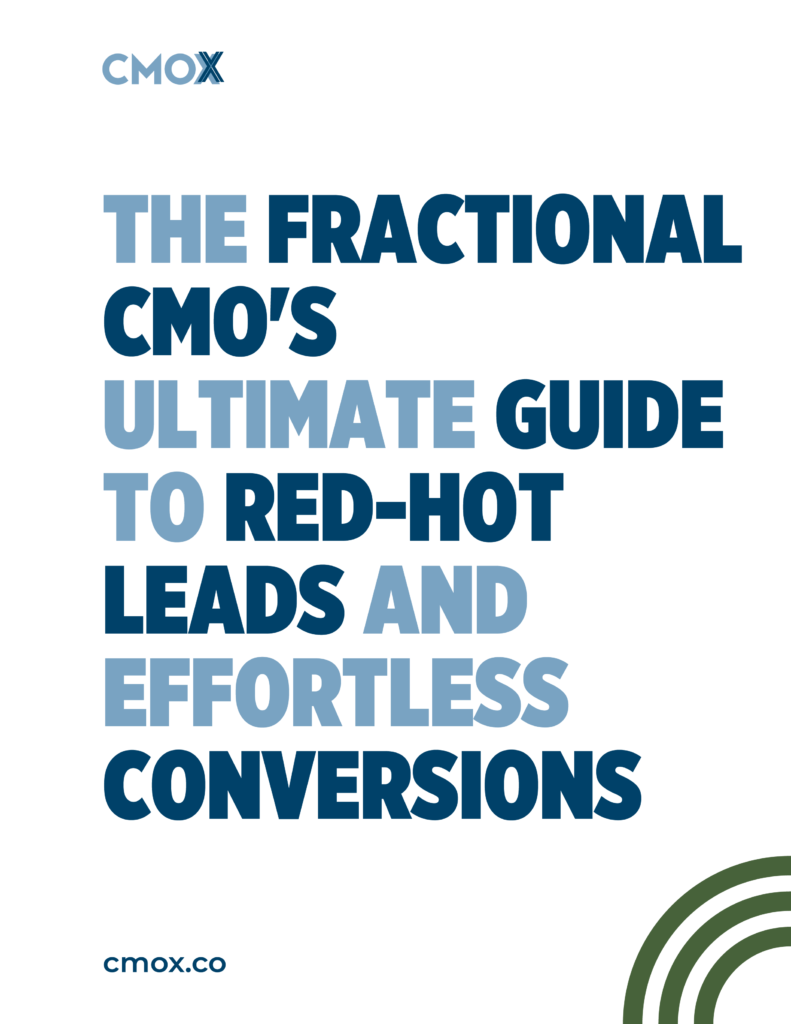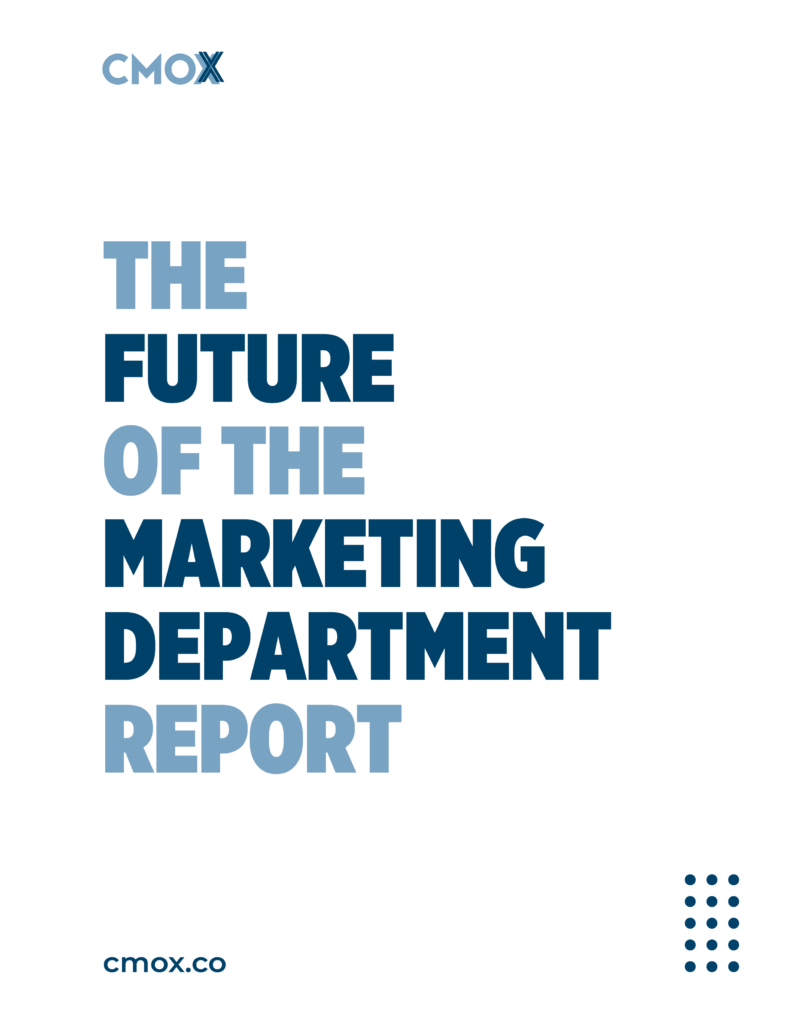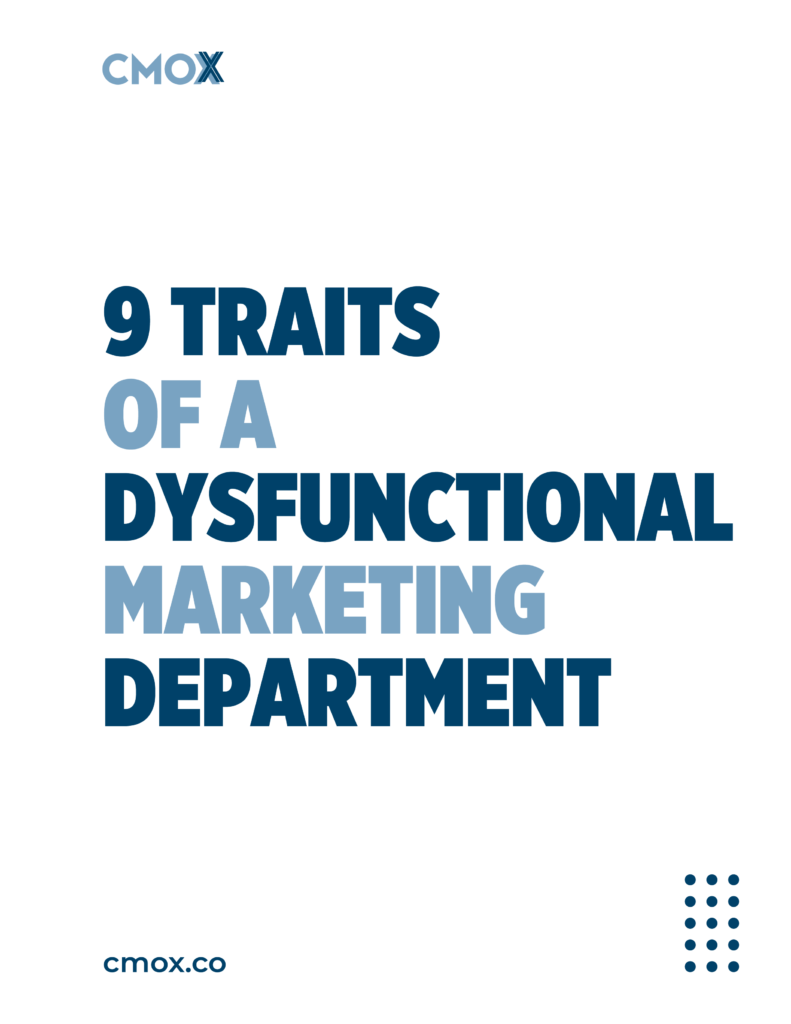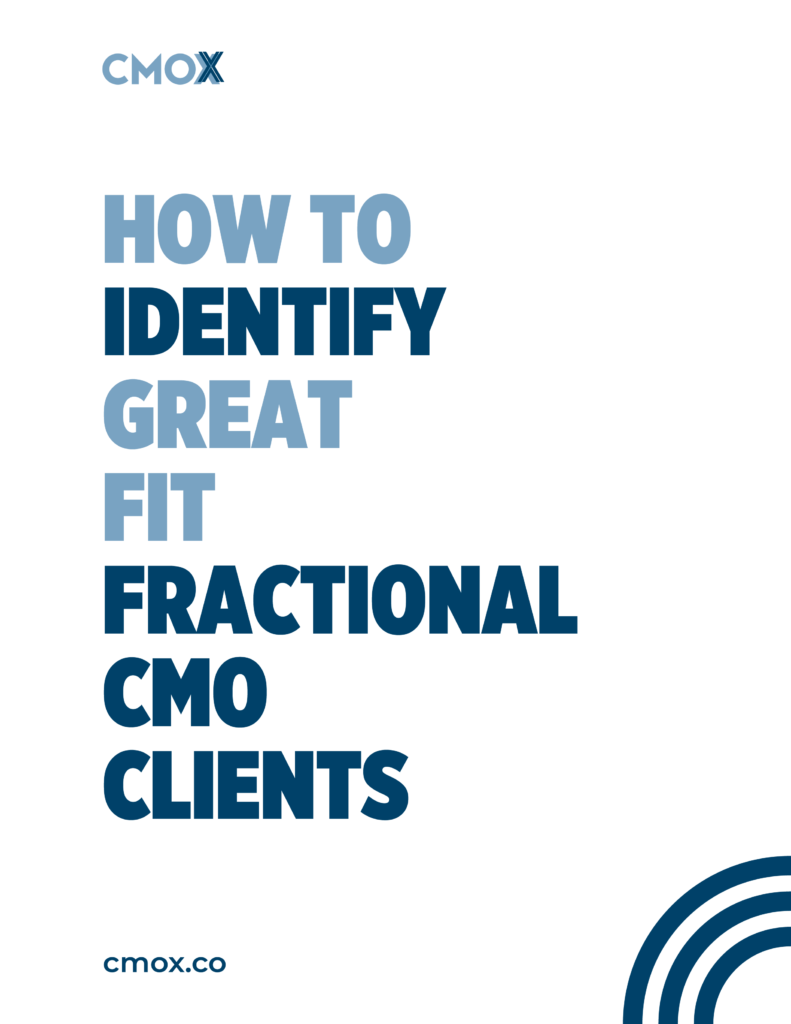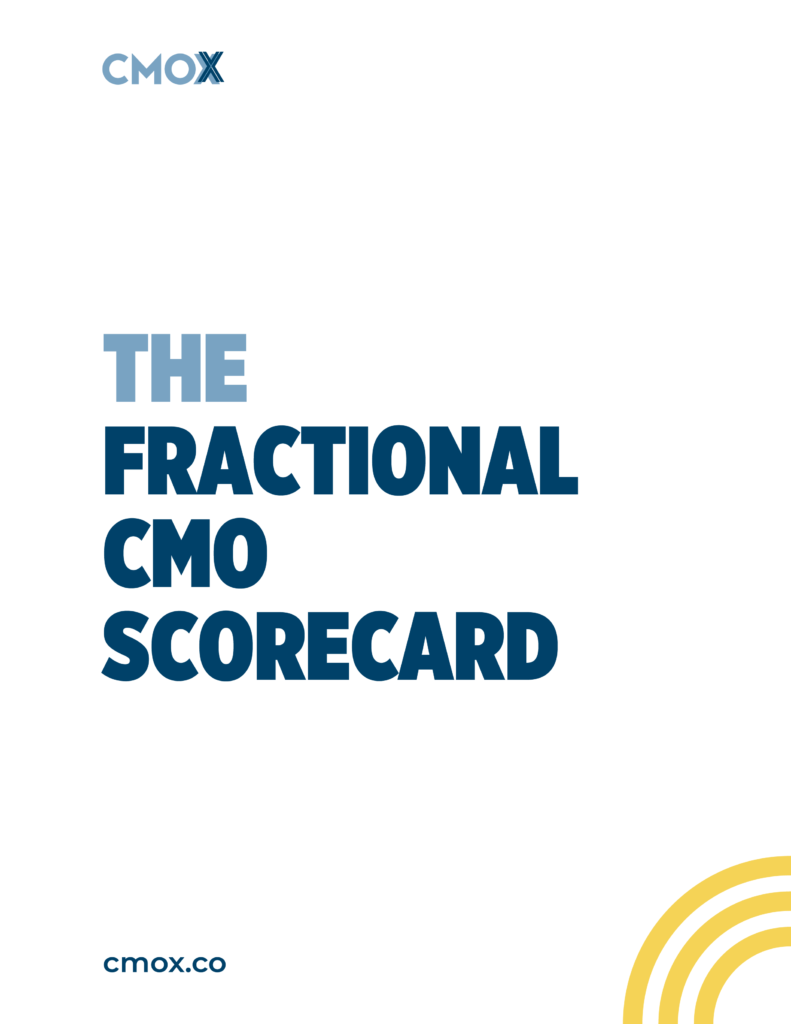Ep #119: Long Term Commitments

In this episode of The Fractional CMO Show, Casey Stanton unpacks what it really means to build long-term commitments - in business, in life, and with your clients. He draws parallels between parenting, marriage, and marketing to show why real success as a Fractional CMO doesn’t come from chasing quick wins or stacking short-term contracts - but from committing deeply to the right people and problems over time.
Casey shares how marketers can shift from being short-term “consultants” to long-term “farmers” - building stable, profitable relationships with just a few high-value clients. He explains why focus and consistency outperform luck and adrenaline, how “time under load” creates mastery, and why a calm, predictable business beats boom-and-bust revenue cycles every time.
Along the way, Casey offers a reality check on the myth of easy money, guidance on setting and holding big goals, and a reminder that true freedom comes from discipline and depth - not distraction.
Whether you’re just starting your fractional journey or ready to stop reinventing yourself every 90 days, this episode is a must-listen roadmap to building a stable, fulfilling, and high-income practice for the long haul.

Episode highlights:
In this episode of The Fractional CMO Show, Casey Stanton unpacks what it really means to build long-term commitments – in business, in life, and with your clients. He draws parallels between parenting, marriage, and marketing to show why real success as a Fractional CMO doesn’t come from chasing quick wins or stacking short-term contracts – but from committing deeply to the right people and problems over time.
Casey shares how marketers can shift from being short-term “consultants” to long-term “farmers” – building stable, profitable relationships with just a few high-value clients. He explains why focus and consistency outperform luck and adrenaline, how “time under load” creates mastery, and why a calm, predictable business beats boom-and-bust revenue cycles every time.
Along the way, Casey offers a reality check on the myth of easy money, guidance on setting and holding big goals, and a reminder that true freedom comes from discipline and depth – not distraction.
Whether you’re just starting your fractional journey or ready to stop reinventing yourself every 90 days, this episode is a must-listen roadmap to building a stable, fulfilling, and high-income practice for the long haul.
🔑 Key Topics Covered:
- Why short-term thinking keeps Fractional CMOs stuck in reinvention
- The shift from “consultant” to “farmer” and why long-term wins
- How to build stable, multi-year client relationships
- The power of “time under load” and deep mastery
- Why three great clients beat 15 short-term ones
- How focus and consistency outperform luck and hustle
- The freedom that comes from calm, predictable revenue
- Why discipline and commitment drive lasting success
Transcript:
00:00:00 Casey: In this episode, we’re going to talk about long-term commitments as a fractional CMO. What it means, what you have to do to set yourself up for long-term success so you don’t play this short-term game of always reinventing yourself. Let’s go.
00:00:13 Casey: Marketers of the world, why do we work hard to solve small problems? Why do we reinvent ourselves and our clients over and over? And why are we giving away marketing strategy for free? With advancements in AI, we’re all seeing the marketing department shrink from the bottom up, and companies need you to serve them as their fractional chief marketing officer. It’s time to solve bigger problems and bring home a bigger paycheck. It’s time to create the lifestyle we deserve and to make a greater impact.
00:00:45 Casey: This is the Fractional CMO Show, and I’m Casey Stanton. Join me as we explore this growing industry and learn to solve bigger problems as marketing leaders. The Fractional CMO Show is sponsored by CMOx, the number one company to teach you how to attract, convert, and serve high paying fractional CMO clients on your terms.
00:01:09 Casey: Hey, it’s Casey. So in this episode, I want to talk to you about commitments. And I think a commitment is a very interesting thing today. Kind of always has been. And I think there’s just so many parallels in business commitments and in personal life commitments. And there’s these natural beliefs that we have, which have been molded over the course of our life. And I want to dive into this.
00:01:33 Casey: So let me tell you first, it’s a little tangent, but trust me, it comes back. It’s about taking care of kids. All right. So I’m an uncle. I’ve got so many nieces and nephews. If I had to count, I think I’m at 12 or 13, something like that on both sides of the family. It’s a ton, right? And I’m the baby of my parents. So I have a niece that’s in her twenties, and then I have a nephew that is just a couple of years old. So huge swath. And I’ve been living this life of having kids in my life. And I’m like a fun uncle and everything, but you know what I’m not? Like I wasn’t, was a caretaker of children. I never learned it, right? I never learned how to be a caretaker.
00:02:22 Casey: I was the uncle that would come over and babysit and have fun and order pizza and dance all night and listen to Metallica and that kind of stuff. But I was never the uncle that was like caring. I never changed a diaper. I didn’t plan these extravagant outings where I was really thoughtful or anything. I just would kind of show up and wing it. And it turned out like, I think I did an okay job. I think maybe my nieces and nephews would think of me as the fun uncle, but my commitment to them was to show up, have fun, and then leave. Very much like the role of the uncle, especially like the single uncle or the uncle with a girlfriend or whatever, like my girlfriend and I would show up or whatever.
00:03:01 Casey: As I’ve gotten older, I’ve gotten married and now I have kids. And when my son August was born, everything shifted for me. No longer could I be just the person who shows up and has fun and leaves. I had to be the person who was there through the thick or the thin. You know, I was there when my wife had a milk duct get clogged and we had to go to the hospital because her fever was spiking. I was there when my wife had a pre-eclampsia, right? And I was in it for that.
00:03:32 Casey: I remember holding like my five day old kid, my son in the backseat of this car. We had a Jetta at the time at the hospital, just holding him while my wife’s inside cause we don’t want to take a newborn into an ER because like that’s kind of, oof. And I’m like figuring it out right then, right? I had a commitment to my son that I’m going to figure it out. And that commitment is so different than my commitment to my nieces and nephew. My commitment to my nieces and nephew was to be a good uncle, but not to be a good parent. And to be a good parent is just different. It’s just different. And if you’re a parent, you get it.
00:04:07 Casey: It’s the difference of having friends that have dogs and going over there and being fun and bringing treats and walking the dog and whatever. And then also being the parent of the dog who takes the dog to the vet and gets the dog’s teeth cleaned proactively and goes and gets their regular vaccines and their shots and their checkups and all that stuff. Like it’s a different level of commitment. And you’ve opted in in your life in some way to this level of commitment.
00:04:33 Casey: When I was a renter, I think back to college and uh we’ve put holes in the wall, like when we were in the dorms. And someone told me as a passing comment, I don’t even remember who he was like, hey, what’s cheaper than filling those holes with a stucco or whatever? Just use toothpaste. And I was like, that’s a genius idea. So I took toothpaste and filled our holes up and we didn’t have any quote unquote damages at our apartment, right? Like I was kind of a crappy tenant. I wasn’t terrible, but I wasn’t great.
00:05:05 Casey: Now I own a house and my commitment’s very different. Did I ever once check the air filter at my first apartment? Absolutely not. Do I check it religiously now? Yes. Do I have a relationship with my high velocity air conditioners? Yes. Have I invested in the tools to be able to keep everything running? Yes. Right? It’s a different level of commitment. And we naturally come across these levels of commitment in our life. You’ve done it too. As I say this, I want you to think, where have I committed to something? You’ve committed to a child. You’ve committed to a spouse. I mean, that’s a big one.
00:05:42 Casey: And I think for some people, that’s a hard one to come to terms with. Maybe you’re not fully committed. You got a wandering eye, right? Maybe that’s a thing. Or maybe you’re fully committed and like you’re totally in and you’re committed to this person. Maybe your vows said something like, till death do us part. And you really believe it and you hold that as truth. At the end of the day, all we have is really like our word and that’s our commitment to something.
00:06:04 Casey: So you’ve committed somewhere, okay? But where are we today as a population? Attention spans are just plummeting. Attention spans have gone down something like 35, 40% since the early 2000s. We just have shorter attention spans. If you’re ever on YouTube and you have autoplay turned on, your attention span is getting pummeled. You’re just getting beat up. You’re getting told what to think and what to consume. You know, it’s like… if you watch Netflix and then you watch the next thing after and the next thing after.
00:06:38 Casey: There’s a time in my life when I did that, right? I just would turn it on and just zone out, right, take whatever recreational substance of choice you have and just kind of chill out. Maybe it’s a glass of wine, maybe you roll a joint, whatever your thing is, right? And you’re just kind of zoned out and you’re just like, whatever happens, happens. As you mature in life and in business, you need to get to a point where you’re committing and you know this to be true.
00:07:06 Casey: You need to be the person who in the world of short-term commitments establishes long-term commitments. It’s a requirement for your success. You can say, Casey, you’re wrong and I don’t have to do it and I can wing it and you will get screwed. You will not be successful. And if you are successful, it’s because you’re one in a million, something happened, you were lucky. But listen, I don’t plan on being lucky. I certainly hope I’m lucky.
00:07:34 Casey: I still am the kind of person who like… I don’t use cash much at all, but if I find myself with cash/ I recently sold something on Facebook marketplace and I had a bunch of cash. And I went to the corner store to grab a drink and like just to get a spin drift and they had a Powerball machine. And I was like, I’ll throw a 20 on the Powerball, right? Like I have no expectation that I’m going to win that stuff. No belief that I have some power to be more lucky than other people. But what I do have is the ability to focus and win in the things that I have complete control over or mostly control over. And then sure, maybe I’ll play the Powerball, I don’t know, three times a year or something. And you know, if I hit big, I hit big. But the likelihood of that happening is near zero.
00:08:19 Casey: So I don’t live in a world of being lucky. I live in a world of being committed to an outcome and fighting every day for it. And that’s where I want you to be. So I don’t want you to let algorithms decide what you consume. I want you to have a little bit more discipline than that. You ultimately have to choose what you want. So my question to you is, what do you want?
00:08:41 Casey: And if you’ve listened to the podcast, you might’ve heard me say the story about me going to the White Mountains just before my daughter was born on a men’s group retreat. And I wanted a prompt for myself to work on. And I was thinking, maybe it’s like, what kind of father could I be? Or what would my life look like with two kids and how are things different? Or whatever, like some kind of prompt to kind of reflect on while I’m hiking with a bunch of other dudes that are doing some self-reflection.
00:09:05 Casey: And I asked a friend of mine, Jayson Gaddis at The Relationship School, and I asked him what he thought I should reflect on. And he said, oh, easy. Just reflect on what do you want? What do you want? What’s the thing that you want? How do you answer that question? What do you want? It’s a co-on. It’s impossible to answer. But it’s one of those things that you can just massage in your brain and work through and think through. Right? Like you can spend time figuring out what you want.
00:09:32 Casey: I think back to Gary Bencivenga in his tapes. The name of the tapes? I think it’s the Bencivenga… well, I don’t know. It’s where he discusses the Bencivenga Persuasion Equation, which is so good. He’s such a classic marketer. I really love Bencivenga’s work. And he talked about the power of the subconscious and going to bed at night with a problem in your mind and waking up in the morning and having the solution. And you know that this has happened to you before.
00:10:01 Casey: So many people lack the discipline or the commitment of taking a problem and sleeping on it and trying to work on it day after day. Instead, they say, hmm, what do I want? Hmm, I want to be rich. Okay, I’m gonna go watch YouTube, right? Oh, I’m gonna go have this client call. Oh, I’m gonna go check my email. That’s a big one. Checking your email is responding to other people’s demands on your time and you don’t take enough time to think.
00:10:28 Casey: How do you think? Where do you think? What do you do to think? It’s different for everyone. I’m a walker and thinker. That’s a big one for me. I like to walk and think. I can bike and think too, but really it’s walking. That’s like a good one for me. I might throw on like a weighted vest just so I look a little paramilitary in my neighborhood just to kind of freak out the neighbors. You’ve seen like rucking. I think it’s kind of becoming a thing right now. And I like to do that. It’s a bit of a physical activity that gets your heart rate up. It’s a little strenuous.
00:10:58 Casey: But really, by and large, it’s just walking. The Stoics said like when you have a problem, go for a walk. Walking tends to solve the problem. The problem here, the meta problem is that most people don’t identify the problem to solve on the walk. They go for a walk, and they listen to a podcast. I encourage you to go for a walk and don’t listen to anything. Go for a bike ride, don’t listen to anything. If you’re gonna listen to something, listen to music that doesn’t have lyrics in it. Right? Just to kind of get lost in thought. That’s where you want to be. Find that special zone for you where that happens.
00:11:32 Casey: I like a good walk in the morning, you know? I have these AirPods. I don’t know the generations of them, uh I have them here in my hand. These are the AirPods that don’t have the rubber tips on them, but they’re noise canceling. I prefer that. I don’t like the rubber tips, but these are great because I can throw them in my ear and walk and it just drops the decibels, maybe, I don’t know, 30 decibels, 20 decibels, something like that. It’s a significant drop in sound for me. And I just kind of get in my head a bit and I can think. So I want you to figure out where do you think well, where can you reflect? Okay. I want you to build a muscle to reflect and think and to work through big problems that are your long-term commitments.
00:12:19 Casey: Long-term commitments. Here’s an example of one. I want you to have a long-term commitment of creating long-term commitments. Whoa, right? So it’s a long-term commitment. You’re committing to yourself that you’re going to create with others long-term commitments. I’m going to create a long-term commitment. I’ve created one with my wife and I continue to kind of recreate that commitment, like ongoing. It’s not like I said it once at the Schermerhorn Symphony Center in Nashville, when we got married and then I never have to do it again? No, it’s like I commit and then I have to recommit on a regular basis because I’m changing, I’m growing, I’m a different person than I was when we got married.
00:12:56 Casey: I also want you to build long term commitments with your clients. So consultants, to me, four-letter-word, no one likes a consultant. Consultants come in, tell people what to do, and then leave with a paycheck. And then everyone’s like, oh shit, now we got to do this thing? Who’s that guy? Well, we hit a roadblock. Who do we call? We got to pay him a lot more money? That sucks. It’s like, it’s not a good relationship to work with a consultant. And consultants are pirates. They go out, they get the booty and they bring it back and they’re in the cave and they share it with their compatriots. That’s not you. I want you to be a farmer. I want you to go and farm. I want you to go and make the long-term commitment.
00:13:36 Casey: My wife and I are watching a series on HBO right now called Floret. It’s really great. It’s this woman who has a flower farm and she kind of like, for lack of a better term, like kind of ate shit for a couple years. Like moved to this plot of land and lived in this very meager home and out her back door were her flower farms. And she just worked her butt off and she was committed. And now my wife is ordering the most beautiful Dahlia Tubers from her that are unbelievable. And you know she’s making big money because she has an HBO special, she’s got online courses and she sells Dahlia Tubers. She’s doing very well.
00:14:15 Casey: But she was committed to it. And to get to her level of expertise, her level of success, the requirement was the effort over a long period of time. If she says, I want to have a great flower farm and have all these great tubers to sell to people, she can’t do it in a season. She can’t do it in two seasons. She can’t do it in five seasons, right? This takes a decade to do. So long-term commitment. She was committed to it. She’s now reaping what she sowed. She’s truly a farmer. But I want you to have the farmer’s mentality.
00:14:52 Casey: I want you to get aligned with your clients to work together for the long haul. So this is not you saying like, hey, let’s work together. We’ll work together for 30 days and see where it goes from there. It’s, hey, I’d love to work with you. I think you have a problem that I could solve. And I’m really looking for a hard problem to solve over the next couple of years. I really want to get locked in with a great company for the next couple of years. How does that sound to you?
00:15:21 Casey: If you Google the term fractional CMO, someone has an article on how they closed like 15 fractional CMO clients in a year. And when I read that, that sounds awful. It’s like wanting stability and saying like how I got 15 dates. It’s like, I don’t want 15 dates. I want one date that turns into a long-term commitment, right? I want stability. How many clients do I think you should have? Three to five and honestly closer to three. I think three’s a great number. I think two, your income is just too dependent on one of those and if you lose one, it’s bad. If you have three, I think it’s a lot safer. I think naturally three can move to five if you have some folks drop down to advisor and kind of chill there. I think three to five is where you want to be.
00:16:08 Casey: I don’t want you to have 15 clients. I want you to have long-term commitments with a few clients with a huge opportunity. And that’s where CMOx’s are steady. They’re calculated. And they’re positioned, honestly, to win really big. They’re positioned to go work with their clients for years and then get paid really well. What would your life be like if you made the revenue or income from your best month, just repeatedly for 12 months? It’s when these CMOs come in and they blow up quickly because they follow the strategy and they win a bunch of clients, but they do it a little too fast. And they make a lot of money. Maybe they’re making 50, 60, 70, $80,000 a month, but it’s at the cost of their life. It’s really hard for them because they’re making a lot of money, but they’re kind of burning out, they’re working their butt off. It’s just not stable for them.
00:16:59 Casey: And that’s a lesson that they have to learn sometimes. And it sounds great. You’re like, Casey, I would do whatever it takes to make 80 grand a month. I hear you, but you’ll make 80 grand and the next month you’ll make 80 and then the next month you’ll lose a client or two and you’ll make 60. And then after that you make 40 and then you’re at 30 and then you’re at 20 and you’re freaking out because you don’t know what happened and you’ve got all these new expenses and that stuff happens. I’d rather you get to 40 and just cruise for two years. Like go make a half million dollars a year for two years and see where you’re at. And you’re doing that at like 30 hours a week.
00:17:34 Casey: I’m not saying that you can’t make more than that. You certainly can. But the idea of longevity and simplicity and relative ease for you is more important than super high months. And you might be saying, Casey, but I’m in this position where I owe the IRS a bunch of money or whatever. Okay. Like maybe you need to make a lot of money for a short amount of time and it’s going to come at the cost of maybe your health. Okay. Like maybe that’s a whole… that just might be reality. But if it’s not, don’t try to shoot so high to get started. Just go stable. Get your…, drop your adrenaline, right? Drop your stress hormones. Just chill and make great money and serve great clients and have a lot of fun and just kind of relax in the role. And as you do that, you’re going to get better.
00:18:23 Casey: Your long-term commitment of generating long-term commitments means you’re spending more time under load. So if you’ve ever lifted weights before, you know that what you want to do is spend more time under load. You want to increase the weight. You want to increase the reps. You want to have progressive overload that makes you stronger. You know what doesn’t make you strong? Doing bench presses on Monday and then training for a triathlon the following week and then the next month doing a Spartan race and then the next month trying to do powerlifting.
00:18:58 Casey: Like if you jump around to these different modalities, you never spend enough time under the same load to actually get good. You think you get breadth like width, but no one wants that. They want you to have depth. You’re more dangerous an inch wide and a mile deep than a mile wide and an inch deep. You don’t want to do everything okay. You want to do a few things so dangerously well that people are willing to pay kind of unreasonable amounts of money for it because you generate a very predictable result for them.
00:19:31 Casey: So your long-term commitment is to chill out and just do the same thing over time and get better and better at it. And if that sounds boring, the same thing. Just remember that everything is changing so rapidly. So to do what you’re doing today with a client as a fractional CMO, if you can continue to do that in like two years, what’s going to happen with AI and how’s that going to change things? And now you’re the person that understands the basics of marketing, how to execute them successfully, and how to leverage AI, offshore workers, automation, machine learning, whatever the thing is, you get it. People want that from you. They want the person who understands the regulated market if you’re in the regulated space.
00:20:10 Casey: I’ll tell you, we have a CMO and I was on a call with him recently and they know a regulated space very well. That alone already makes them different than most people. I don’t know that space. I couldn’t compete with them ever with those clients. They were saying acronyms and initialisms that I just didn’t understand. I was like Googling them in real time. I was completely… like, I was just learning. I was like a beginner at what they were saying. I was like, I don’t know this industry at all.
00:20:39 Casey: I used to feel that way when people would talk about professional services, like what does that mean? You know? If you have the experience in an industry, that gives you an upper hand like if you have 10 years of experience in the financial planning space, in the medical device space, in the crypto space. If you know how these things work, if you’re in cybersecurity, if you’re in any of these more niche topics, niche industries that are regulated that have a kind of like a higher barrier of entry and you can stay in that, that’s pretty dangerous, right? You can be pretty dangerous for the right company. Dangerous being a good thing, right? You can make a lot of good stuff happen in a short amount of time, because you know it.
00:21:20 Casey: And some of our CMOs at CMOx, they have a lot of relationships, and they can go leverage those relationships. They can make one call and close a bunch of business. We’ve got one of our CMOs who’s… they can like the home improvement space. She’s a real killer. And for the right company, she just sends a couple emails and she can make incredible outcomes happen. She has incredible power to do that. So she shouldn’t leave that space, right? She shouldn’t go find wherever the money is. She should stay in her space and find the money in her space and go get it for herself.
00:21:53 Casey: So that’s that’s the thought for you. It’s like, you want depth in the work that you’re doing. And I want you to have a big idea of what you want. For a long time, for me, was $50,000 a month, working 30 hours a week or less. That was my number. I was on a whiteboard on the wall and I would look at it every single day. My eyes would drift to it while I was on a sales call. And it was so helpful. It helped me get aligned and focused.
00:22:17 Casey: What’s your long-term commitment? I couldn’t get to $50,000 a month, 30 hours a week or less in a month. I thought maybe I could do it in a year. I was wrong. It took me longer than that because I’m kind of pioneering all that. It was tough. Took me a while. I got there. It was awesome to get there felt really good. I took myself out for a nice bike ride on the day that I hit that outcome. And I think you got to hit it for like three months in a row for it to be real. It’s not like just once. It’s like three months consistently. Can you hit it? Can you hold it? If you can, then that’s real.
00:22:54 Casey: That’s a long term commitment. What’s your long term commitment? If your long term commitment is to ping pong around the industry and do fractional CMO work agency work, try to spin up custom GPTs and try to sell those for a couple hundred bucks, do some implementation work, do some design work, build an agency, shut down the agency, doing that kind of stuff, launching your own products like all that. If that’s the thing that you want to do, I wager you won’t be successful long term.
00:23:26 Casey: I just happened on Sam Ovens’s Facebook page yesterday. And I don’t know Sam personally, I followed him for years. I followed the consulting.com stuff that he did. And the dude kind of went dark. I think it was in 2022 or 2023. You can look at his Facebook page and see he just kind of went dark. And what did he do? He grew his hair out and he launched Skool. It’s a great SaaS app. It’s like a nice membership SaaS app. And you’ve seen Alex Hormozi maybe as like a partner of it now doing promotion stuff. It’s awesome.
00:23:59 Casey: Sam went all in. He just kind of like shut up and worked and he outworked everyone and he’s got a better product than most that are out there. And you can say, I love Skool, I hate Skool, right? But you can’t deny his success. And that’s proof that just shut up and work is the thing and work longer and harder that it would make it unreasonable for you not to be successful. That’s the goal. But so many people lack the commitment.
00:24:28 Casey: People want to hire the best CMO. If you’re not the best, you have to set the intention to become the best. I do not want the not best. When you… thought about moving, and you’ve got kids or thought about having kids, you’re like, I want to be in the best school district. Maybe you couldn’t afford it, but you still wanted the best. You know where the best is. You know that neighborhood that you kind of wish you lived in, or maybe you live in it.
00:24:59 Casey: You want to become the best. And if your site is set below that, if it’s set to this month, this week, today, you’re going to lose. If it’s set long-term, where you want to be in 3 years, 5 years, 10 years, 20 years, now we’re talking. Now you can build something every single day that’s significant. You’ve got four quarters. If your vision is over 25 years, every quarter constitutes 1% of your way there.
00:25:29 Casey: I think it’s a cool model. It’s Dan Sullivan’s model. I would say that that model was probably a little bit more relevant before the proliferation of large language models. And I think just how things are shifting so rapidly, it’s a little harder to predict 25 years out. I mean, we can predict lifestyle where we want to live all that kind of stuff. Like cities won’t change much. Like New York City still will be one of the biggest cities on earth. If you want to live there. Florida will still be on the gulf in 25 years. Now maybe some of the land might be eaten by the ocean. Maybe not. But there are some truths to the long term realities. And you can make a plan that far out. I’m just asking you to make a long term commitment here for the next couple years. Where do you want to be?
00:26:17 Casey: I don’t think there’s any place better than being a fractional CMO. I think it is absolutely reasonable to think that you could have multiple clients paying you hundreds of thousands of dollars each year, and have those clients for multiple years. You can have that relationship. And if you do it right, there’s kind of not much more that you need. Talk about a lifestyle that allows you to be successful, allows you to travel, have kids, be with your family, be there for all the important events. But it requires a commitment and it requires effort.
00:26:49 Casey: I think anyone that tells you that it doesn’t require effort is wrong. Like there’s shortcuts certainly that you can take. What we have documented in the accelerator, like our proposal, such a killer thing to have. If you have the proposal that I paid a lawyer for and that I’ve tested and all of our CMOs use, I think effectively verbatim, you don’t have to go write that shortcut. Awesome. Useful. If you want my help in negotiating upside, this is one of the things I offer to all of our members inside the accelerator. If you’re working a deal and you want to negotiate upside, talk to me. Let’s talk about it.
00:27:20 Casey: I just met with one of our members who had a great deal that came out through his outreach and it’s a huge deal for him. And when he approached me with it, frankly, he was thinking about it the wrong way. And I don’t know if he would have been able to close the deal the way he thought about it. I helped him reset his view on things and sell a long term approach with the client that they can emotionally buy into and then they can stomach a short term increase in fees. And I think it’s a much more advantageous approach for him. He’s going to make… if he’s able to close the deal, he’s going to make a lot more money based on that. I mean, a lot more money and his life is going to be a lot more simple, a lot less hectic, a lot less reinvention all the time.
00:28:05 Casey: It’s just going to be kind of like… it’s almost a little boring. And I don’t say that in a negative way. I mean, boring, like, well, I’m working on this client for the next couple years, and they’re gonna pay me this amount for the next couple years, and I can plan my holidays and vacation, and I know where I’m gonna move to, because now I can finally afford the down payment for whatever, right? Like, it’s a little boring in that way. It’s not like, oh my god, I got a sales call every day. And if one of these sells, maybe I’ll make some extra money. It’s just kind of like a calm confidence of going through life. It’s a beautiful way to do things.
00:28:34 Casey: I didn’t appreciate what that would be like when I was younger. And now that I have kids and a wife and a house and a life and two cats and a dog, it’s helpful for me to have that level of consistency. I want you to have that too. It really is the solution to this independent contracting lifestyle. It’s the people who have contract work that’s only good for 30 days and they’re penthouse to shithouse to penthouse people. They’re up and down and up and down. That’s a tough life. And when they’re up, maybe they’re really up and then they kind of blow it or maybe they save some of the money for a rainy day. But then that rainy day lasts for a long time, last for six months and they struggle getting more work. I’d rather you have long term commitments.
00:29:21 Casey: You just gotta have more time on the load. You don’t get better by pretending. This fake it till you make it. No, no, I’m not a fake it till you make it person. I’m like a be honest with yourself price yourself accordingly if you haven’t done it before. Get time under load, get better, and then watch your rates skyrocket. Because if I can get someone a solution previously in 12 months, and now, because I’ve done it twice, I can get someone the same solution in three months, could I double my rates? I think that’s very reasonable to double them. So I mean, triple them, quadruple them, whatever, right? Like these things are all possible. It’s like what the market will bear, what the client will bear. There’s some nuance to it. But the idea here is if you’re better, you can charge more and do it in less time and have an ongoing commitment with them to continue working.
00:30:12 Casey: So that’s my vision for you. And I want to help you. I want to be the guy that’s in your corner rooting for you. If you want help, if you’re the kind of person who’s like, you know what? I think life would be better if I had someone helping and I didn’t have to go alone. I went alone. It took me extra years. Yeah. I mean, when I think about like how I undersold myself, the stress that I had, the frustration, the anxiety of just like getting it wrong, not knowing what to do, not having anyone I could trust to talk to, not having any prudent process, not having frameworks. It was hard and it was expensive and I left a lot of money on the table.
00:30:47 Casey: And when folks join the accelerator, oftentimes for them, it’s like, just a conversation with me helps them negotiate a higher rate that the client accepts that more than pays for the cost of the accelerator. Like that pays for it. Like, not only does their client pay them, but then the increased fee offsets any costs that they paid to have access to live coaching and support and our services and our processes and our documents and our trainings and all that stuff.
00:31:16 Casey: So if that’s interesting, I’d love to talk with you. Book in a call with my team. You can just go to cmox.com/call and just book it in. It’s like a 15 minute call. We ask you a couple of questions, see if we can help you. If we can, we tell you the next steps. Let’s talk to someone else on my team, John and Melissa, and they’re gonna help see if we can really help you. And if we can, we’ll share what that looks like. And if we can’t, we’ll point you in the right direction. That’s it. It’s really simple. So you ought to know just for yourself if it makes sense to get help or not.
00:31:44 Casey: So that’s it, just go to cmox.com/call, but please only do it if you’re committed. If you’re the person who’s not committed, we’re interested. I’m not interested. I don’t want you to come in and be like, I don’t know. Keep selling me on this idea of being a Fractional CMO. It’s like, no. The only people we want in the accelerator are the people who are committed to the long term. We’re going to stack that cash up. We’re going to serve their clients, make a lot of money, have a lot of fun. That’s where we want to be. All right. I hope to see you in the Accelerator. See you later.
00:32:17 Casey: Thank you for sticking around for the full episode. As you know, learners are earners, but you’ve got to take action on what you heard today. For more information and show notes, visit fractionalcmoshow.com. If you’d like me to answer your questions on an upcoming episode, you can share your question at fractionalcmoshow.com. And last, please hit the like and subscribe button so that I know that this content is helpful to you. All right, go get them.
Join Our Community
We are excited to announce the Fractional CMO Community Facebook Group. This aims to be a place where Fractional CMOs or marketers considering becoming a Fractional CMO can connect and share ideas.
Locations CMOx® serves
- New York
- Philadelphia
- Los Angeles
- San Francisco
- Chicago
- Houston
- Dallas
- Austin
- Miami
- Atlanta
- Denver
- Boston
- San Diego
- Seattle
- Portland
- Minneapolis
- Milwaukee
- Detroit
- Phoenix
- Washington D.C.
- St. Louis
- Toronto
